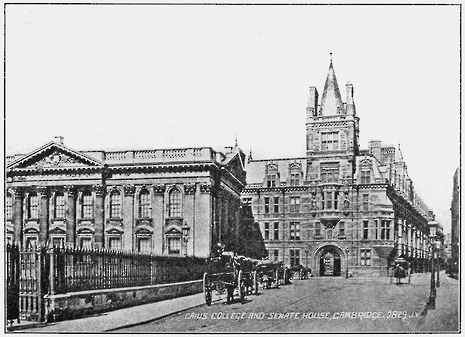The Need for Solidarity and the Heaviness of the Other: Part II
This week in her column on BME issues, Jun Pang continues her discussion of the immutability of history and the importance of solidarity found in organisations such as the NUS

On Tuesday, a discussion was held in the Senate House on the UK government’s Prevent legislation and its implementation by the University. In response, Lola Olufemi, the facilitator of FLY (the BME Women’s Network) composed a powerful write-up of the event in relation to the need for Cambridge University to remain within the National Union of Students (NUS), given the NUS’s continuous support for student activists who fight for imperative issues such as the decolonisation of education. What I want to focus on here is activism in general, and why support from external organisations – and why solidarity – is absolutely necessary.
Many people underestimate the emotional labour that it takes to be an activist (on BME issues, LGBT+ issues etc.). This stems, for me at least, from a fundamental feeling of historical displacement. It is more than just not being able to acclimatise to this country and its traditions, but a knowledge of history which means that I and many others live everyday with a deep consciousness of the fact that we were never meant to be here. One look at admissions statistics, or statistics about academics’ career advancement, will tell you all you need to know about how “far” we’ve come.
The immutability of history is such that there is constantly a nagging sensation that I will never belong: no matter how well I learn to use a fish knife, or to engage in polite, proper conversation, I can’t outrun hundreds of years of exclusion. It is painful to come to the understanding that you are systematically disadvantaged in such a multitude of ways that it means that only time and perhaps a complete paradigm shift (with some redistribution thrown in, for good measure) will lead to equality. What is even harder is that life goes on in spite of this Sisyphean realisation – essays, labs, supervisions keep pushing us on. All the while, there are people out there who will never have to think about these issues as playing a role in their lives. When we are faced with incidents of ignorance and bigotry, with no one to fall back on but ourselves, nothing can heal us but time and effort.
BME people can spend hours upon hours unpacking the microaggressions and macroaggressions that shape our daily experience. When someone says something racist to me or about me, or appropriates my culture, it’s not just annoyance and ‘offence’ that I feel, but a deep alienation and anger. An insult directed towards me, or a conscious theft of my culture, based on a supposed knowledge of what 'my people' do is not simply irritating, it is offensive in the literal sense of the word: it is an attack on my humanity (see Alice’s fantastic post on FLY on the Queens’ Africa-themed formal). When something like this happens, I can’t just sit idly by – either I spend hours ruminating and reflecting on my own, or I bring it up in a forum like FLY, where people express solidarity and work together to unlearn mistaken knowledge.
You might ask, why don’t you just tell people what they’re doing is wrong? Surely if it’s affecting you, you should do something about it? But it should not be the responsibility of the person receiving the aggression to have to educate their aggressors. Besides, too many of us have had the experience of trying to talk through different issues with friends and being shut down right away for being 'killjoys' or, in one of my favourite turns of phrase, oversensitive.
What we need are spaces in which we can voice our concerns. For me, the life-affirming space of solidarity that is the FLY network is what helps me think through and process the vagaries of living in this white-dominated space. For Cambridge students as a whole, in the context of the United Kingdom, the NUS Black Students' Conference, the NUS Women’s Conference, and the National Conference are all spaces of solidarity and critical thinking. They allow student voices to have a real impact. Now that Prevent looms heavy on the horizon, and students are being targeted and silenced, how can we afford to lose the links that provide us with the ability to make change?
There is no singular BME narrative in Cambridge. But something we do share, to varying degrees, is the feeling of being surrounded by a history that literally towers above us, unrelentingly and forebodingly reminding us that this place was not built for 'people like us'. It’s important that we don’t forget that we aren’t alone in this fight. It’s important to remember that we are supported by other students in the country, and that we support them in turn. It’s important that we remain in the conversations that matter to us.
 News / News in Brief: Postgrad accom, prestigious prizes, and public support for policies11 January 2026
News / News in Brief: Postgrad accom, prestigious prizes, and public support for policies11 January 2026 Comment / Will the town and gown divide ever truly be resolved?12 January 2026
Comment / Will the town and gown divide ever truly be resolved?12 January 2026 Features / How sweet is the en-suite deal?13 January 2026
Features / How sweet is the en-suite deal?13 January 2026 News / 20 vet organisations sign letter backing Cam vet course13 January 2026
News / 20 vet organisations sign letter backing Cam vet course13 January 2026 Comment / Plastic pubs: the problem with Cambridge alehouses 5 January 2026
Comment / Plastic pubs: the problem with Cambridge alehouses 5 January 2026









